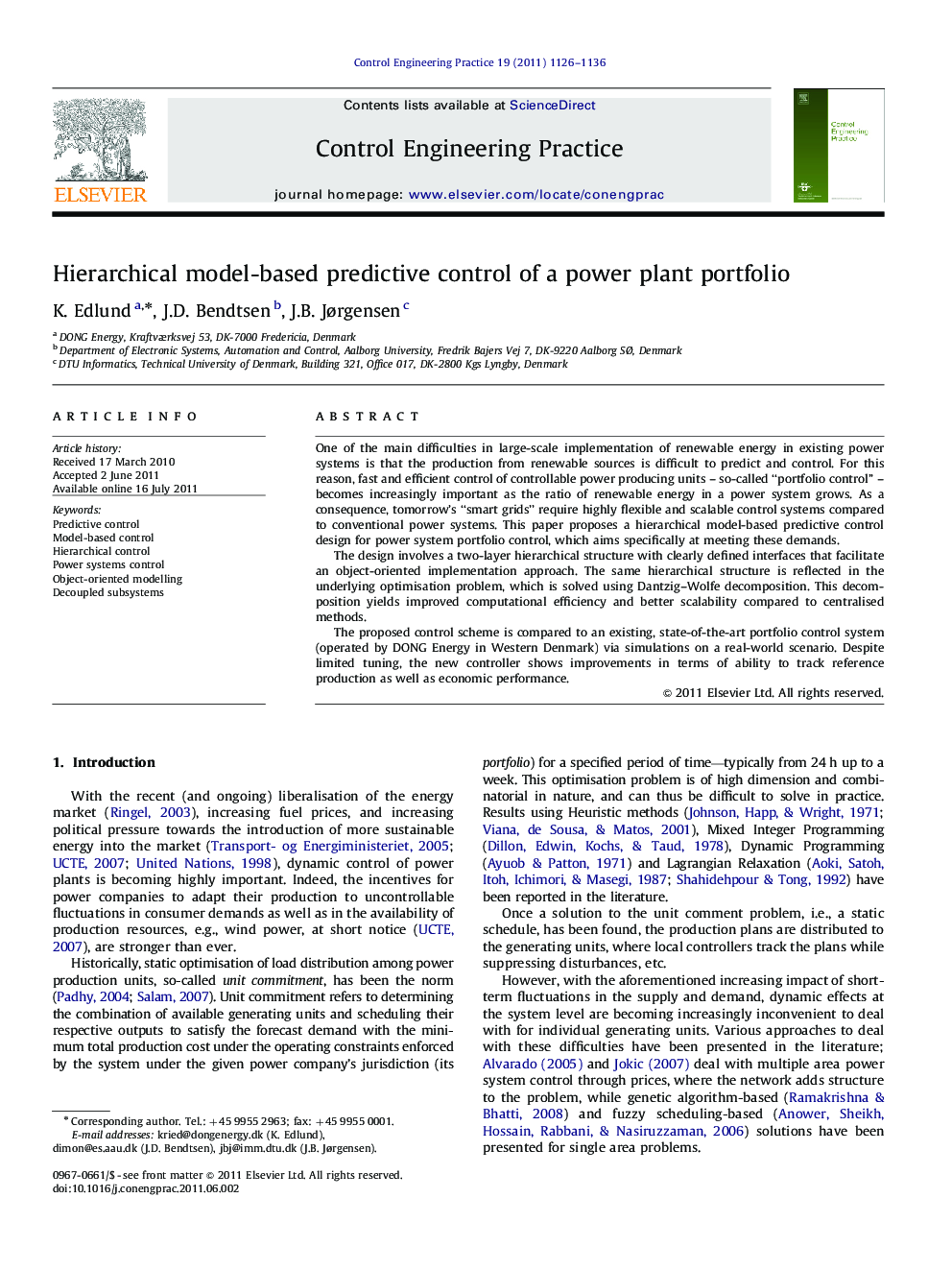| Article ID | Journal | Published Year | Pages | File Type |
|---|---|---|---|---|
| 699142 | Control Engineering Practice | 2011 | 11 Pages |
One of the main difficulties in large-scale implementation of renewable energy in existing power systems is that the production from renewable sources is difficult to predict and control. For this reason, fast and efficient control of controllable power producing units – so-called “portfolio control” – becomes increasingly important as the ratio of renewable energy in a power system grows. As a consequence, tomorrow's “smart grids” require highly flexible and scalable control systems compared to conventional power systems. This paper proposes a hierarchical model-based predictive control design for power system portfolio control, which aims specifically at meeting these demands.The design involves a two-layer hierarchical structure with clearly defined interfaces that facilitate an object-oriented implementation approach. The same hierarchical structure is reflected in the underlying optimisation problem, which is solved using Dantzig–Wolfe decomposition. This decomposition yields improved computational efficiency and better scalability compared to centralised methods.The proposed control scheme is compared to an existing, state-of-the-art portfolio control system (operated by DONG Energy in Western Denmark) via simulations on a real-world scenario. Despite limited tuning, the new controller shows improvements in terms of ability to track reference production as well as economic performance.
► An improved dynamic economic dispatch of power plants was developed. ► Model predictive control was employed to handle plant constraints. ► Dantzig–Wolfe decomposition was used to ensure a flexible and scalable solution.
